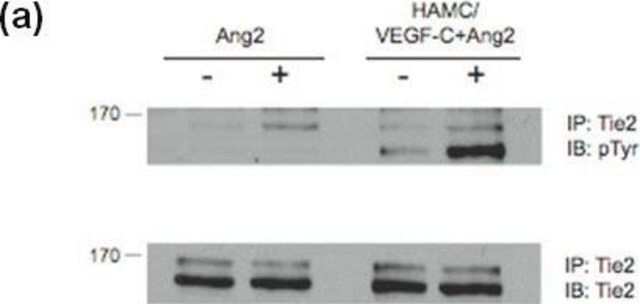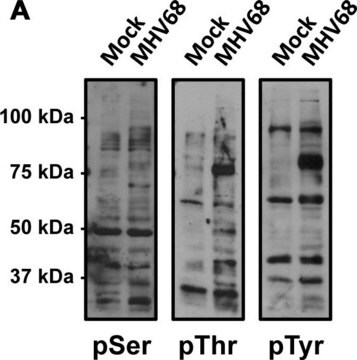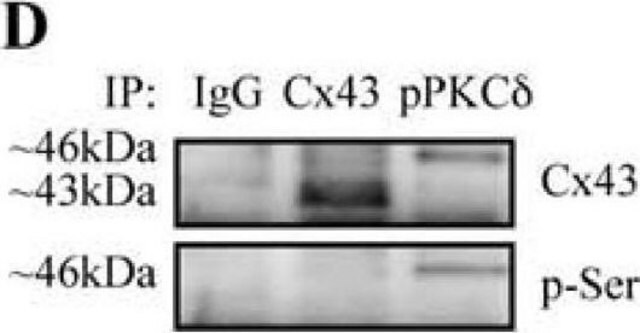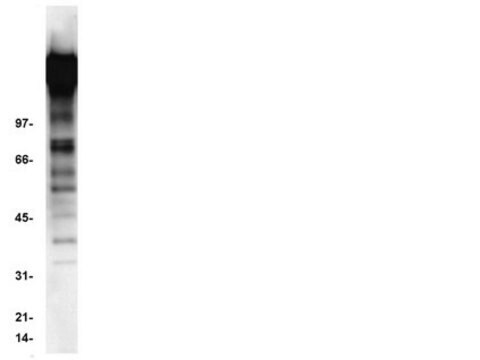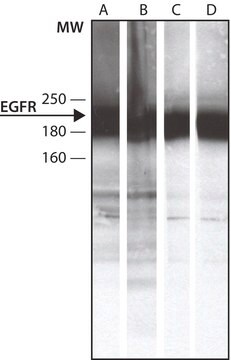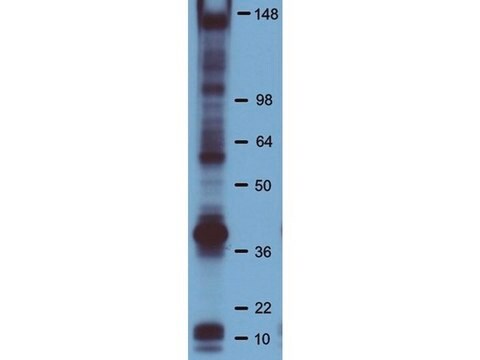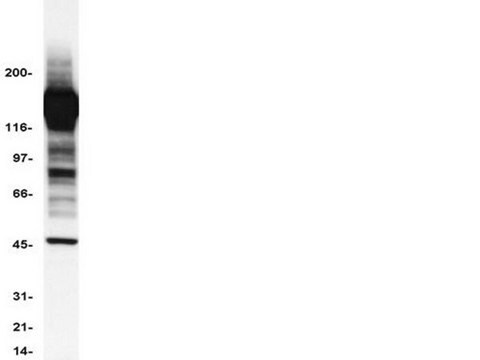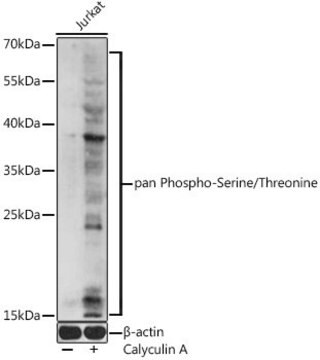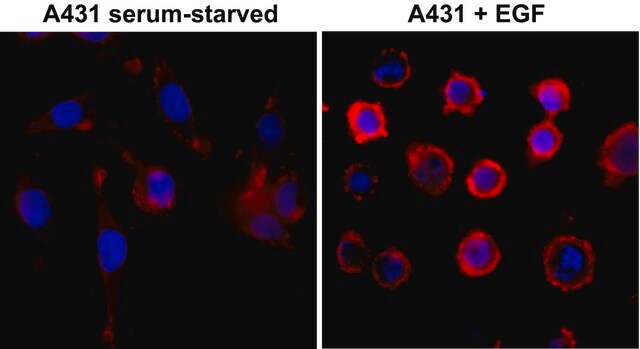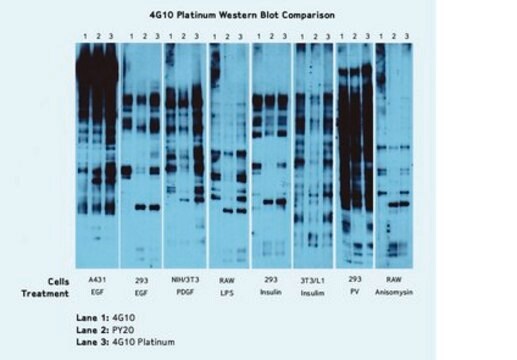06-427
Anti-Phosphotyrosine Antibody
Upstate®, from rabbit
About This Item
Recommended Products
biological source
rabbit
Quality Level
antibody form
affinity purified immunoglobulin
antibody product type
primary antibodies
clone
polyclonal
purified by
affinity chromatography
species reactivity
human
species reactivity (predicted by homology)
all (based on 100% sequence homology)
manufacturer/tradename
Upstate®
technique(s)
immunoprecipitation (IP): suitable
western blot: suitable
shipped in
wet ice
target post-translational modification
acetylation (test)
Gene Information
human ... PID1(55022)
General description
Specificity
Immunogen
Application
Signaling
General Post-translation Modification
Signaling Neuroscience
Immunoprecipitation Analysis: 5 µL from a representative lot immunoprecipitated Phosphotyrosine in 0.5 mg of EGF treated A431 cell lysate
Quality
Western Blotting Analysis: A 1:500 dilution of this antibody detected Phosphotyrosine in 10 µg of EGF treated A431 cell lysate.
Target description
Physical form
Storage and Stability
Analysis Note
Positive Antigen Control: Catalog #12-302, EGF-stimulated A431 cell lysate. Add 2.5µL of 2-mercaptoethanol/100µL of lysate and boil for 5 minutes to reduce the preparation. Load 20µg of reduced lysate per lane for minigels.
Other Notes
Legal Information
Disclaimer
Not finding the right product?
Try our Product Selector Tool.
recommended
WGK
WGK 1
Flash Point(F)
does not flash
Flash Point(C)
does not flash
Certificates of Analysis (COA)
Search for Certificates of Analysis (COA) by entering the products Lot/Batch Number. Lot and Batch Numbers can be found on a product’s label following the words ‘Lot’ or ‘Batch’.
Already Own This Product?
Find documentation for the products that you have recently purchased in the Document Library.
Our team of scientists has experience in all areas of research including Life Science, Material Science, Chemical Synthesis, Chromatography, Analytical and many others.
Contact Technical Service